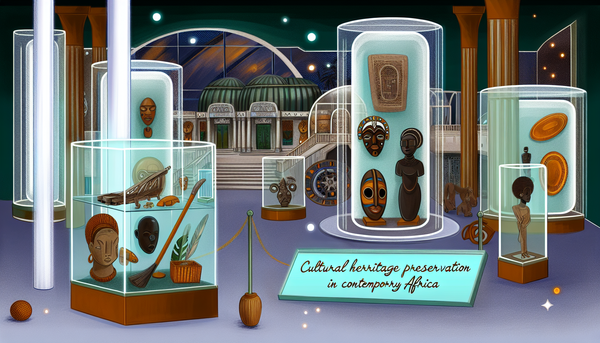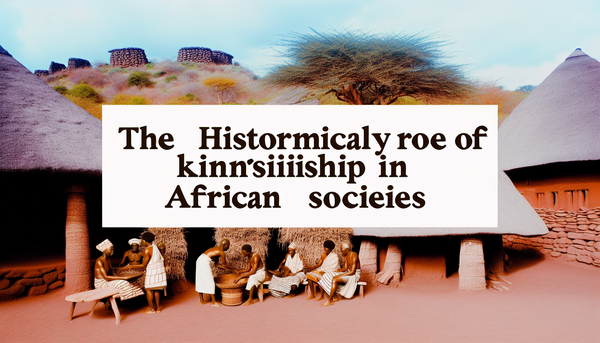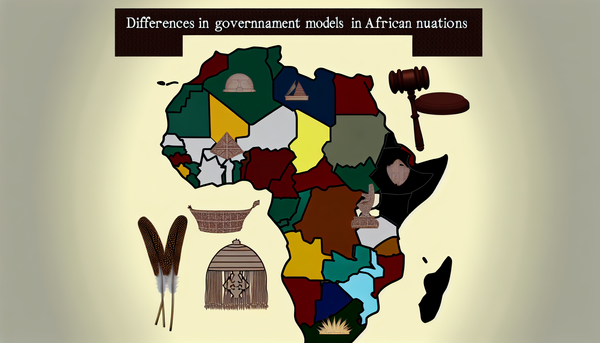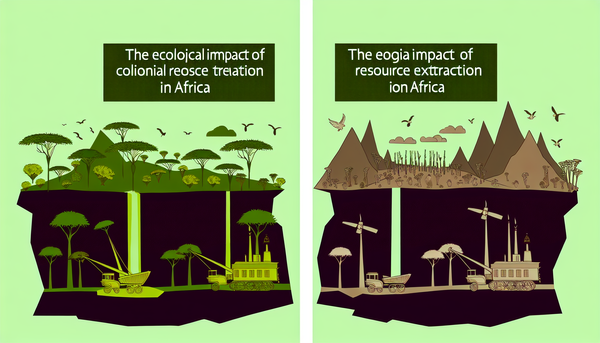Historic Trade Relations Between Africa and Europe
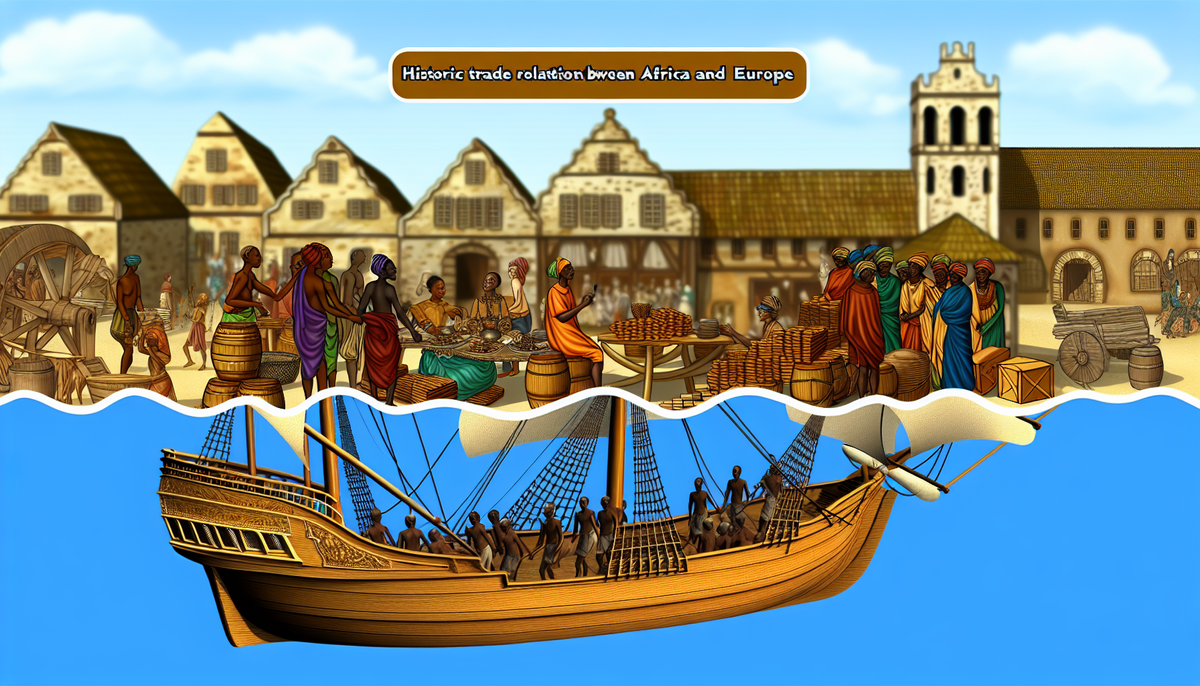
Early Maritime Trade and the Impact of Portuguese Explorers
In the 15th century, Portuguese explorers embarked on ambitious maritime expeditions along the African coast, marking a significant turning point in trade relations between Africa and Europe. These voyages were driven by a quest for new trade routes, spices, and gold, propelling Portugal to the forefront of global exploration. Notable figures like Prince Henry the Navigator orchestrated these journeys, leading to the establishment of trade outposts along West Africa’s coast.
The Portuguese developed a trade network that facilitated the exchange of gold, ivory, and exotic goods, significantly impacting local economies and societies. Their interactions with African kingdoms, such as the Ashanti and the Kingdom of Kongo, led to complex relationships, including both commerce and cultural exchange. However, these engagements were not without conflict, as competition for resources often resulted in violence and the subjugation of local populations.
Crucially, the Portuguese played a pivotal role in the early slave trade, shipping enslaved Africans to Europe and later to the Americas, thereby intertwining African destinies with European economic ambitions. This maritime trade era set the stage for enduring patterns of exploitation and paved the way for further European incursions into the continent.
The Role of the Dutch and British in Colonial Commodity Exchange
During the 17th and 18th centuries, the Dutch and British emerged as dominant players in the colonial commodity exchange, significantly shaping trade dynamics between Europe and Africa. The Dutch East India Company (VOC), established in 1602, was a pioneering force in maritime trade. The Dutch sought to control lucrative trade routes and commodities like spices, sugar, and textiles. They constructed trading posts along the African coast, most notably in present-day Ghana, where they engaged in the transatlantic slave trade to meet labor demands in the Americas.
Simultaneously, the British established their own colonial networks, particularly through the Royal African Company, which facilitated the brutal transport of enslaved Africans. British traders capitalized on the demand for sugar and tobacco, driving regional economies in West Africa to align with European demands. This exchange was characterized by the export of enslaved individuals and the import of products like gold and palm oil from Africa, establishing a cycle of dependence that benefitted European markets.
As these nations vied for control, they solidified a triangular trade system, exploiting African resources and people, while accelerating the colonial enterprise that transformed economies and societies on both continents. The legacies of this time continue to influence modern trade relations today.
Trans-Saharan Trade and Mediterranean Commerce in the Pre-Colonial Era
The Trans-Saharan trade routes served as vital arteries of commerce linking Sub-Saharan Africa with Mediterranean markets long before the advent of European colonialism. These ancient trade networks facilitated the exchange of a variety of goods, including gold, salt, textiles, and spices, fundamentally shaping economies and cultures across the regions involved. Caravans of traders, often comprised of Berbers and Tuaregs, braved harsh desert conditions to transport valuable commodities between the African interior and bustling Mediterranean hubs such as Cairo, Tunis, and Marrakech.
Salt, sourced from the Saharan salt flats, became a critical commodity due to its necessity for food preservation, while West African gold fueled wealth in Mediterranean empires, altering economic landscapes. Cities like Timbuktu and Gao emerged as significant cultural and intellectual centers thanks to their role as trade hubs, attracting scholars and merchants from diverse backgrounds.
The Mediterranean shipping routes complemented these overland exchanges, allowing for a cross-pollination of cultures and ideas between Africa, Europe, and the Middle East. This rich tapestry of interaction laid the groundwork for future economic ties and illustrated how interconnected the world was long before European colonial powers expanded their reach into Africa, dramatically altering these established dynamics.
Slavery and the Transatlantic Slave Trade: Economic and Human Costs
The Transatlantic Slave Trade, a tragic and complex chapter in history, had profound economic and human costs that resonate to this day. From the 16th to the 19th centuries, millions of Africans were forcibly taken from their homelands and transported to the Americas, primarily to serve as enslaved laborers on plantations growing cash crops like sugar, tobacco, and cotton. This brutal trade was driven by European powers' insatiable demand for economic profit, enriching nations while simultaneously dehumanizing countless individuals.
The economic impacts were staggering; the slave trade fueled the development of a plantation economy, generating immense wealth for European traders and investors. Ports in Britain, France, and Portugal thrived as centers of commerce, profiting from the sale and exploitation of enslaved people. However, the human toll was catastrophic. Families were torn apart, cultures disrupted, and lives lost during the perilous Middle Passage, where conditions onboard slave ships were horrifically inhumane.
Moreover, the psychological scars left on communities and individuals affected generations, creating legacies of trauma that persisted long after the abolition of slavery. Understanding the economic foundations of this trade highlights the need for ongoing dialogue about its enduring impacts on both sides of the Atlantic, emphasizing the moral imperative of addressing historical injustices.
The Influence of Italian and French Trading Posts in North Africa
During the late medieval and early modern periods, Italian and French trading posts in North Africa played a significant role in shaping commercial relations and cultural exchanges between Europe and the African continent. Italian city-states, such as Genoa and Venice, established trading enclaves in places like Tunis and Tripoli, exploiting the region's strategic position along Mediterranean trade routes. These posts facilitated the exchange of a variety of goods, including textiles, spices, and precious metals, while also serving as hubs for the transshipment of enslaved individuals.
French expansion in North Africa began in the 17th century, with ports like Algiers becoming crucial for trade and military endeavors. French traders sought to access the wealth of North African resources, including olive oil, grains, and luxury items. Furthermore, the French established diplomatic relations with local empires, fostering alliances that would influence political dynamics in the region.
Both Italian and French interactions with North Africa were characterized by a blend of commerce and cultural influence, as European and African practices intermingled through trade. However, the legacies of these trading posts included both mutual cultural exchanges and the seeds of colonial aspirations, setting the stage for future European dominance in North Africa.
Economic Policies and Raw Material Extraction in the 19th and 20th Centuries
The 19th and 20th centuries witnessed aggressive economic policies centered on raw material extraction, particularly in Africa and other colonized regions. European powers, emboldened by industrialization, sought to secure access to abundant natural resources to fuel their economies. This resulted in a scramble for Africa, as nations like Britain, France, and Germany established colonies primarily for the extraction of valuable raw materials such as minerals, rubber, and agricultural products.
Colonial administrations implemented exploitative economic policies that prioritized the extraction of resources over local development. Mining operations for gold, diamonds, and copper bloomed, often benefiting colonial powers while neglecting the needs of indigenous populations. Infrastructure, such as railways and ports, was developed not for the benefit of local economies but to facilitate the efficient transport of resources to European markets.
These policies created significant economic disparities and entrenched patterns of exploitation that lasted throughout the colonial period and beyond. The extraction-focused approach stunted the development of diversified local economies and perpetuated dependency on global markets. The long-term consequences included environmental degradation, social upheaval, and economic imbalances that continue to affect many formerly colonized nations in the 21st century. Understanding this historical context is essential for addressing contemporary economic challenges.
Post-colonial Trade Agreements and Modern Economic Partnerships
In the wake of decolonization during the mid-20th century, many newly independent nations sought to redefine their economic relationships through post-colonial trade agreements and modern economic partnerships. These agreements aimed to enhance trade and investment while fostering greater economic autonomy from former colonial powers. Countries across Africa, Asia, and the Caribbean negotiated terms that prioritized local development, equitable trade practices, and regional cooperation.
The establishment of organizations such as the African Union and regional trade blocs like the Southern African Development Community (SADC) and the Economic Community of West African States (ECOWAS) marked significant steps toward collective economic strategies. These partnerships aimed to reduce reliance on former colonial powers by promoting intra-regional trade and investment, thereby boosting local economies and creating job opportunities.
Furthermore, modern economic partnerships have evolved to include strategic collaborations with emerging economies, such as China and India, diversifying trade relationships beyond traditional Western ties. While these agreements offer opportunities for growth, challenges remain, including addressing historical imbalances, ensuring fair trade practices, and managing the impacts of globalization.
Ultimately, post-colonial trade agreements represent a critical attempt by nations to carve out a more equitable economic future, fostering sovereignty in an interconnected global economy.
